Fees debate
Last week started with the Sunday Times headline suggesting that the government would reduce tuition fees to £7500 and then the debate that has been continuing all summer boiled over briefly. You can read more about it on Wonkhe here.
Headline grabbing policies on tuition fees are apparently fed by the view that all those students who turned out in much increased numbers (and they did) voted Labour (which many of them did) because of their belief in the Labour policy on fees (since denounced as a lie by the Conservatives). As we wrote in our 7th July policy update when we looked at this question specifically, whether this will work to convert all those student votes is very questionable – students are not single issue voters and even if they were, living costs are probably a more immediate issue for many.
Nick Hillman, Director of HEPI, writes in the Guardian that a Government study providing data on student income and expenditure (due to be published 18 months ago) is still being suppressed by Whitehall. Nick calls for this report to be published to underpin the current furore with a robust evidence-base.
Meanwhile living costs remain a hot topic in an article that talks about Labour “hoovering up the student vote”.
The Labour party conference takes place next week and Conservative party conference starts on 1st October so we can expect more on this over the next few weeks. There are still rumours that there will be an announcement on postponing the inflation based fee cap rise for students starting in 2018/19 (now long overdue and expected to be around £9500), that there will be announcements on reducing interest rates or increasing repayment thresholds for student loans, or just possibly something on maintenance grants.
For BU staff: Consultations, intranet and other resources
Did you know that we track sector consultations and calls for evidence and consultations that are relevant to research areas? We provide links to the documents and BU responses on our BU policy intranet pages? Read about current and previous consultations and find all the links, including to the latest tracker.
If you missed our “TEF: Going for gold” workshop with Professor Debbie Holley of CEL recently, you can read more about the latest plans for the Teaching Excellence framework, including subject level TEF, teaching intensity and learning gain on our TEF pages here You can read about the workshop on the CEL blog.
Our intranet pages cover a range of subjects, including the Higher Education and Research Act 2017 and its implications, the Industrial Strategy and Brexit. See our front page here and our “what’s happening” page here.
Industrial Strategy
The Commons BEIS Committee has published the Government’s response to its Industrial Strategy: First Review report, published in March. The Government confirmed that the Consumer and Competition Green Paper will be published in October and will be “consulting on the case for strengthening scrutiny of future overseas investment in some key parts of the UK’s critical national infrastructure. The Green Paper will set out proposals for discussion and consideration, and will invite stakeholders to provide feedback before any proposals become legislation.”
The recommendations from the report and the responses are set out below in summary:
Recommendations 1 and 2 – “The Government should outline a set of clear, outcomes-focussed metrics..”. And 2: “we recommend that the Government publishes annual updates to its action plan …the Government should also create a single dashboard of metrics …on GOV.UK”.
- Response – “…we are considering the role of metrics in measuring the progress of the Industrial Strategy in meeting its goals. This work is part of ensuring that the Industrial Strategy endures for the long-term.” And (2) “we will be considering the most appropriate mechanisms to update on progress made by the Industrial Strategy and what analysis and data should accompany these updates.”
Recommendation 3 – “We recommend that Government reconsider giving sectoral strategies priority and instead focus on horizontal policies and specific ‘missions’ to meet UK-wide and local public policy challenges.”
- Response – “We agree with the importance placed by the Committee on horizontal policies…However, there is also advantage in addressing the opportunities and challenges in particular industries and sectors—such as by helping create conditions for a thriving supply chain, and developing institutions in which companies can share in research and development and training. …we have proposed to set an ‘open door’ challenge to industry to come to the Government with proposals to transform and upgrade their sector through ‘Sector Deals’. This will allow us to consider and address sector-specific issues which would not otherwise be addressed through horizontal policies.”
Recommendation 4 –“We recommend that specific support for industry be guided by a targeted ‘mission-based’ approach, channelling the Government’s support towards addressing the big challenges of the future. “
- Response –“We agree that one of the strengths of an Industrial Strategy is to be able to bring together concerted effort on areas of opportunity that have previously been in different sectors, or which require joining forces between entrepreneurs, scientists and researchers, industries, and local and national government. The Government has announced a new Industrial Strategy Challenge Fund (ISCF)….” [read more in our Industrial Strategy update in the policy update of 25th August.]
Recommendation 5- “We recommend that the Government consider establishing a joint unit bringing together civil servants from BEIS, the Treasury, the Department for Communities and Local Government, and the Department for Education to provide an inter-departmental team to develop and implement the industrial strategy.”
- Response – “The Industrial Strategy is a Government-wide initiative. …The importance of this is demonstrated by the creation of the Economy and Industrial Strategy Cabinet Committee, chaired by the Prime Minister and comprising the Secretaries of State…….A unit based within the Department for Business, Energy and Industrial Strategy coordinates the development of the strategy….We do not believe that establishing a more formal joint unit will provide sufficient added value to justify the disruption to the policy development that this would cause.”
Recommendation 6 “We recommend that the Government improve the transparency of its engagement with business by publishing details of external meetings in a single, searchable database and extending publication to include all meetings ….”
- Response –“Enhancing transparency and accountability is at the heart of our approach to government –…We have a manifesto commitment to continue to be the most transparent government in the world. …We publish details of Ministers’ and Permanent Secretary meetings with external organisations, including senior media figures, routinely on GOV.UK. Information about meetings between officials, businesses and charities are not currently held centrally and could only be obtained at disproportionate cost. Expanding this approach to include all Senior Civil Servants would be a lengthy and costly process …”.
Recommendation 7 – “We recommend that the Government work with industry and local government to conduct a holistic review of the business services and support it offers with a view to simplifying access to advice on these in order to improve the ‘customer journey’. “
- Response – “Government plays an important role in signposting businesses to the support and advice that they need to improve, grow and scale-up their business. Through GOV.UK, supported by a Business Support Helpline and Local Enterprise Partnership (LEP) led Growth Hubs, businesses are able to receive free, impartial support, which aims to simplify their journey to finding the right advice at the right time. In the Industrial Strategy Green Paper we …highlighted that we would look to identify any potential gaps in current policy, informed by international best practice. We also announced a Scale-Up Taskforce, overseen by the Minister for Small Business, to support high growth scale-up businesses across the UK….”
Recommendation 8 – “We repeat our previous recommendation that the Government should set a target to increase R&D investment to 3 per cent of GDP and implement policies to achieve it.”
- Response – “This Government has set out its vision to meet R&D investment of 2.4% of GDP within ten years and 3% in the longer-term. Going forward, this ambition will be an important part of our Industrial Strategy and will require a concerted cross-government approach.”
Recommendation 9 – “In line with the Secretary of State’s stated aim to support disruptors and economic innovation, we recommend that the Government review with industry whether additional steps are needed to provide regulatory certainty for emerging business models.”
- Response – “The Green Paper recognised that new entrants, not just incumbents, play an important role within established sectors of the economy, and that innovative businesses are driving growth in important new sectors. …The Government recognises that, to do this, we must understand key technology trends, foster growth in the new sectors (such as AI and Robotics) that will become increasingly economically significant, and work with established sectors (such as Education and Insurance) as new entrants deploying new technologies and business models emerge and change sector dynamics. In line with the Green Paper commitment the Challenger Business Programme that engages new entrants in existing sectors is being expanded into a Future Sectors team. …”
Recommendation 10 – “We recommend that the Government consider the potential for greater devolution of responsibility and funding for skills to local authorities and Local Enterprise Partnerships….”
- Response – “We recognise we need to bring forward a new offer on skills and technical education …which is why we’ve set out our ambitions for wide-ranging reforms to technical education in both the Industrial Strategy Green Paper and, more recently, in the Budget set out by the Chancellor in March….Alongside this we are devolving the adult education budget to the mayoral combined authorities, starting with a transition towards devolution in 2018/19. Full transfer of statutory adult education functions to the combined authorities, and delegation to the Mayor of London, will take place in 2019/20, subject to readiness conditions. …We are continuing to work towards devolution deals with England’s largest cities where they don’t have them at present. We will also be setting up Skills Advisory Panels in England that will bring together local employers, providers and LEPs to identify local skills needs and inform delivery to support local growth.”
Recommendation 11 – “we recommend that the Government exclude university students from immigration totals and promote high skilled migration to the UK on an equal “who contributes most” basis to people wishing to invest and innovate in the UK.”
- Response – “The Government strongly welcomes genuine international students who come to the United Kingdom to study. There is no limit on the number of genuine international students who can come to study in the UK and there is no intention to impose a limit on the number of international students that any institution can recruit.”
- “Migration statistics are produced by the Office for National Statistics (ONS), the UK’s independent statistical authority. It is for the ONS to determine how statistics are compiled. By including international students in its net migration calculations, the ONS is using the internationally accepted definition of migration, which includes all of those who move for more than 12 months, including students. Other major countries such Australia, Canada and the United States include students in their migration statistics.
- “Those planning the provision of services need to know who is in this country and, like other migrants, international students have an impact on communities, infrastructure and services while they are here. So long as students are complying with the terms of their visas and returning home at the completion of their studies, the overall contribution of students to net migration should be very small and incremental growth in student numbers, along the lines of that seen in recent years, can be accommodated within the net migration target. The target does not require us to impose restrictions on student numbers and we have no intention of doing so.
- “We recognise the value of international students and this is why we are commissioning the independent Migration Advisory Committee (MAC) to provide an objective assessment of the impact of international students.
- “We are considering the options for our future immigration system very carefully. As part of that, it is important that we understand the impacts of different options on different sectors of the economy and the labour market. We will build a comprehensive picture of the needs and interests of all parts of the UK and look to develop a system which works for all. As part of our evidence gathering, we have commissioned the Migration Advisory Committee to consider patterns of EU migration and the role of migration in the wider economy, including how we align our immigration system with the Industrial Strategy. Parliament will have an important role to play in this, and we will ensure that businesses and communities have the opportunity to contribute their views.”
Recommendation 12 – “Fiscal levers can play a key role in shaping business behaviour. We recommend that Government commission an independent review bringing together broad representation to consider whether taxation levers can better be used to boost investment in physical and human capital, research and innovation.”
- Response –“ The government recognises the role of fiscal levers in shaping business behaviour and is committed to ensuring that Britain has a competitive tax system that encourages businesses to invest. …The government keeps all tax policy under review but we do not see the case for an independent review at this time.”
Recommendation 13 – “We recommend that the Government conduct a fundamental review of the outdated structure of the business rates system….”
- Response – “The government conducted a review of business rates in 2015. This review concluded at Budget 2016 where the government announced business rates reductions, costing nearly £9bn over the next five years, benefitting all ratepayers. …All ratepayers will benefit from the switch in indexation from RPI to the main measure of inflation (currently CPI) from April 2020. ….In addition, the government has cut the main rate of corporation tax from 28% to 19% from April 2017 and it will fall further to 17% in 2020.”
Recommendation 14 – “The Government should also consider the opportunities to further boost procurement from within the UK as part of its negotiating strategy for withdrawal from the EU.”
- Response – “We welcome the Committee’s endorsement of our work to maximise opportunities for UK firms to compete in public procurement. The issue of how procurements should be governed following our exit from the EU is being considered as part of the wider [Brexit] process …”
Recommendations 15 and 15 – “…the Government needs to provide much greater clarity and certainty as to what steps it intends to take to intervene in foreign takeover deals and in what circumstances.” And (16) “We recommend that the Government takes steps to ensure it has the power to retain IP benefits in the UK in the event of a foreign takeover”
- Response [Subject to change if published after the Consumer and Competition Green Paper in October]
- “…Maintaining a clear, stable and open environment for trade and investment is, and will continue to be, core to our approach. …We will therefore be consulting on the case for strengthening scrutiny of future overseas investment in some key parts of the UK’s critical national infrastructure in order to protect against potential national security risks. The Green Paper will set out proposals for discussion and consideration, and will invite stakeholders to provide feedback before any proposals become legislation.”
- And (16): “…When companies in receipt of public funds are taken over, Government is able to safeguard public funds by using ‘change of control’ clauses in funding agreements where they exist.”
Recommendation 17 – “The Government needs to provide clarity on the respective roles and responsibilities between national, local and regional institutions. ….While many services may best be designed at a local level, the Government needs to ensure that it avoids creating barriers to cooperation between local institutions or inadvertently introducing perverse incentives that lead to needless and inefficient duplication of services.”
- Response – “We are conducting a review into strengthening the role of LEPs. This gives us the opportunity to consider how we can support the business voice by bringing it further into local economic decision making…”
Recommendation 18 – “We recommend that the Government set out a clear plan to close per head spending gap on infrastructure, R&D and education between London and the rest of England.”
- Response – “The Government recognises the importance of spending on infrastructure, R&D and education to support growth across all regions of the UK. …The White Paper will be an important vehicle to consider these issues in more depth…The Green Paper recognised that, although we have world-leading centres of excellence and leading R&D clusters, we need to do more to strengthen areas outside the ‘golden triangle’ of institutions and businesses between Oxford, Cambridge and London. ….We are now considering how different policy approaches might work in the wider funding landscape for regions and places”.
Alternative and niche providers
Higher Education Commission launched its report: ‘One size won’t fit all: the challenges facing the Office for Students’ The report makes recommendations for the OfS, following hot on the heels of those made by the Minister last week – it looks at alternative and niche provision. There’s a Wonkhe article here
Strategic challenges for the OfS:
- The unintended consequences of policy reform and funding continue to favour the offer of certain modes of study and undermines choice for students
- The balance between upholding quality and encouraging innovation is not achieved, either damaging the sector’s reputation or meaning the sector does not keep pace with changes in technology and the labour market
- Innovation and growth in the sector does not effectively align with the industrial strategy or aspirations for regional growth
- Price variation and two tier provision result in greater segregation across the system damaging social mobility
- The student experience of higher education is undermined as some providers struggle with competition and funding challenges
- Institutional decline, and ultimately failure, reduces choice and the quality of provision in certain areas, or damages the student experience or the perceived value of their qualification
- The Office for Students in its new role as the champion of ‘choice for students’ and ‘value for the tax payer’ must address these challenges. It is hoped that the findings in this report and the recommendations outlined below will aid the new regulator in ensuring the continued success of the sector.
The report includes an interesting overview of how we got to where we are now, and then moves on to look at some knotty issues facing the sector, including alternative models, and a number of themes that arise in that context (such as access, support for students and progression). They look at class and course size, which is interesting given the new TEF focus on “teaching intensity”, practitioner lecturers, industry experience, sandwich degrees and apprenticeships. There is a chapter on funding, costs and fees and of course the report looks at part-time and accelerated courses, also another hot topic for universities as well as alternative providers. The report also examines some of the perceived barriers to innovation which were cited in government papers – validation (which is described a barrier to innovation rather than entry) and retention being a problematic measure for alternative providers.
The consequences of all this start in chapter 4 (page 55) where the report turns to recommendations for the OfS as the regulator.
The recommendations are:
- Universities should learn lessons from the further education sector to create an environment that feels more accessible to students from low participation backgrounds.
- The OfS should work with HEIs and alternative providers to identify how personalised and industry-orientated provision can be scaled up and replicated across the system.
- The OfS, as a principal funder and regulator of the HE sector, should develop ways of incentivising industry practitioner involvement in universities.
- Universities should consider flexible models of placements for sandwich degrees in order to meet the needs of SMEs.
- The OfS should closely monitor the impact of degree apprenticeships on sandwich courses and other work based learning provision.
- The OfS should address cost issues around part-time study and accelerated degree programmes, so as to support wider provision of these non-standard modes.
- We recommend that the OfS monitors the implications of different delivery costs between HE and FE, not least in terms of enabling entry to part-time and mature students.
- Research should be commissioned by the OfS to better understand how students, especially from disadvantaged backgrounds, can be encouraged to use sources of information more critically in their HE choices.
- The Office for Students should provide Parliament with an annual report mapping the diversity of provision across the higher education sector, commenting on trends and explanations for changing patterns of provision.
- The DfE and the EFSA should consider the viability of allowing employers to use the apprenticeship levy to fund work-relevant part-time HE
- The DfE should consider the extent to which accelerated and flexible programmes could be supported by changes to the funding based on credit.
Brexit
Question to the Treasury
Q: Stephen Gethins – If he will make an assessment of whether there will be any gap in funding for UK universities during the transition from EU structural and investment funds to the UK Shared Prosperity Fund.
A: Elizabeth Truss – The Government made a manifesto commitment to use the EU structural and investment fund money returning to the UK after the UK leaves the EU to create a UK Shared Prosperity Fund. In October 2016 the Chancellor confirmed that HMT would guarantee funding for all multi-year ESIF projects signed ahead of the point at which the UK leaves the EU. Funding will be honoured provided that the relevant government department considers the project to provide good value for money and be in line with domestic strategic priorities.
Question on Exiting the European Union
Q: Baroness Coussins – When issues relating to the UK’s participation in the Erasmus Programme will be scheduled for discussion as part of the negotiations on exiting the EU.
A: Baroness Anelay Of St Johns – At the start of these negotiations, both sides agreed that the aim was to make progress on four key areas: citizen’s rights, the financial settlement, Northern Ireland and Ireland and broader separation issues. Both sides need to move swiftly on to discussing our future partnership, including specific European programmes we may still wish to participate in. We want that to happen after the October European Council. The UK government does recognise the value of international exchange and collaboration in education and training, and this forms part of our vision for the UK as a global nation.
Other business this week
The Education Policy Institute published Entries to arts subjects at Key Stage 4 noting a sharp decline in the numbers of pupils studying art and design; drama and theatre; media, film, and TV studies; music; dance; and performing arts. In 2016 entry rates to arts subjects at key stage 4 were the lowest in 10 years. There is evidence of a North-South divide with Southern regions more likely to choose arts options. The report also notes substantial gaps in the arts entry rates from pupils with different ethnic backgrounds. Black Caribbean pupils have particularly high entry rates, whilst pupils from Indian and Pakistani backgrounds are much less likely to take an arts option than those from other ethnic groups. The decline in entry to arts subjects will likely have a knock on effect for university applications within the subject areas by 2020. Entry rates peaked in 2014 so the 2018/19 academic year may see a higher volume of applications. The publication discusses the influence of the introduction of the English Baccalaureate (EBacc) and of Progress 8 which may be deterring entry to arts subjects as they are not within the core subjects for the EBacc.
HEPI published The Positive and Mindful University. The report advocates creating a proactive culture where by students and staff develop their capacity to deal with adversity to prevent mental health problems manifesting. The report provides short school-based cased studies and examples from an Australian and Mexican University. Chapter 4 discusses the UK based good practice and UUK’s mental health in HE programme. Chapter 5 (page 41) sets out 10 steps to support students to make a positive transition to university.
JANE FORSTER | SARAH CARTER
Policy Advisor Policy & Public Affairs Officer
65111 65070
Follow: @PolicyBU on Twitter | policy@bournemouth.ac.uk
 The Science & Technology Facilities Council (STFC) External Innovations are running a Challenge Led Applied Systems Programme (CLASP) to aid with the commercialisation of STFC research in key global challenge areas within the healthcare sector.
The Science & Technology Facilities Council (STFC) External Innovations are running a Challenge Led Applied Systems Programme (CLASP) to aid with the commercialisation of STFC research in key global challenge areas within the healthcare sector.


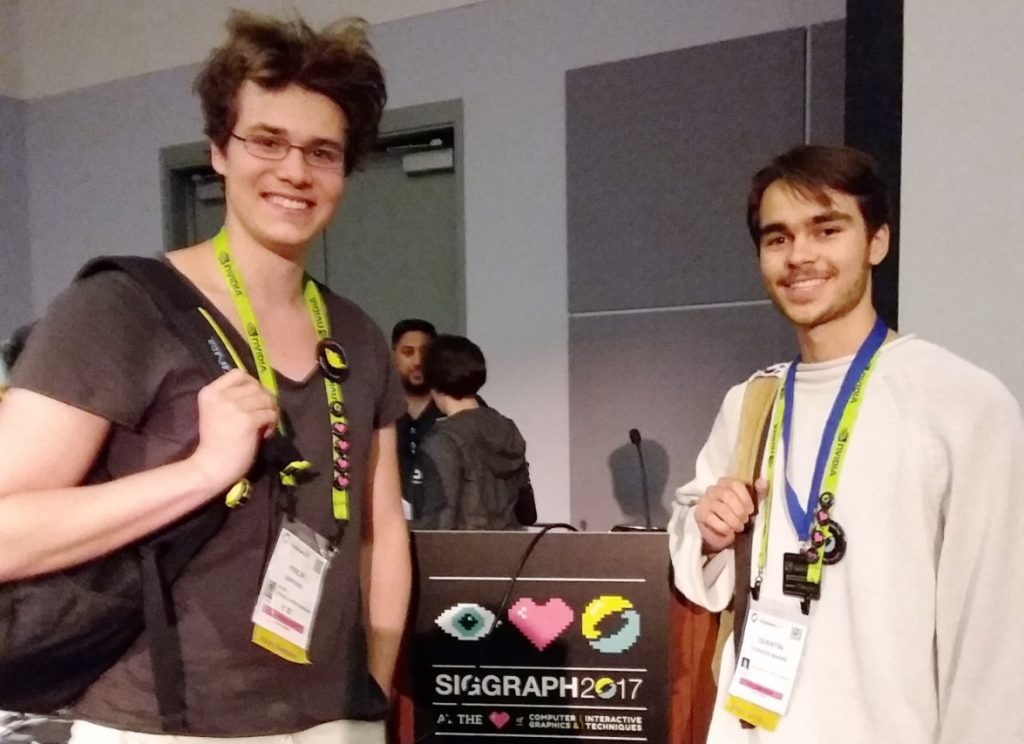
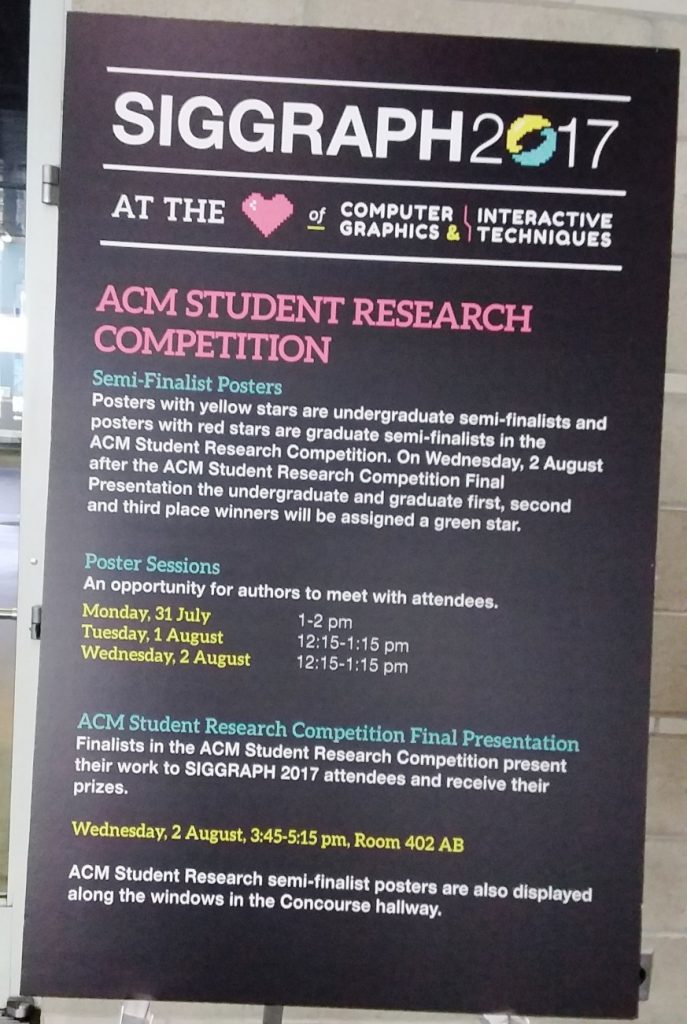



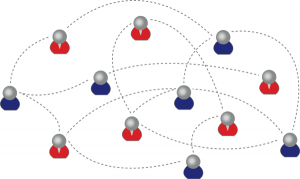

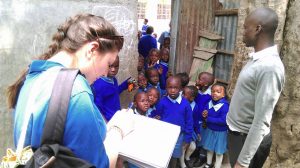
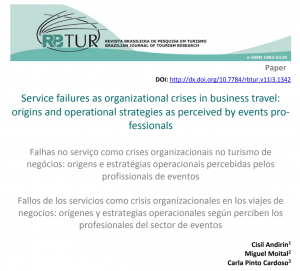
 Last week (11-15 September 2017) saw the successful delivery of the NERC-funded Advanced Training Course Freshwater Taxonomy and Field Identification Skills, awarded to Professor Genoveva F. Esteban (SciTech, Department of Life and Environmental Sciences) in collaboration with the Freshwater Biological Association (
Last week (11-15 September 2017) saw the successful delivery of the NERC-funded Advanced Training Course Freshwater Taxonomy and Field Identification Skills, awarded to Professor Genoveva F. Esteban (SciTech, Department of Life and Environmental Sciences) in collaboration with the Freshwater Biological Association (
 ar from a Research Fellow / former PPI Senior Programme Manager at the NIHR about what is meant by PPI, and to understand how this can be applied to your research. You’ll also hear from the RDS South West PPI Lead on the importance of involving the public and patients in research.
ar from a Research Fellow / former PPI Senior Programme Manager at the NIHR about what is meant by PPI, and to understand how this can be applied to your research. You’ll also hear from the RDS South West PPI Lead on the importance of involving the public and patients in research.


 We have a series of externally-facilitated REF outputs workshops scheduled to take place in early 2018 as part of the RKE Development Framework. Each session is led by REF 2014 sub-panel member who will explain how the panel interpreted and applied the REF 2014 guidance when assessing the quality of outputs. The workshops are open to all academic staff to attend.
We have a series of externally-facilitated REF outputs workshops scheduled to take place in early 2018 as part of the RKE Development Framework. Each session is led by REF 2014 sub-panel member who will explain how the panel interpreted and applied the REF 2014 guidance when assessing the quality of outputs. The workshops are open to all academic staff to attend.












 Connecting Research with Practice: FoodMAPP Secondment in Austria and France
Connecting Research with Practice: FoodMAPP Secondment in Austria and France Health promotion paper read 8,000 times
Health promotion paper read 8,000 times The Beautiful Work Challenge: On Birth
The Beautiful Work Challenge: On Birth Free event on Solutions to Inequalities in Dementia Diagnosis and Care
Free event on Solutions to Inequalities in Dementia Diagnosis and Care MSCA Postdoctoral Fellowships 2025 Call
MSCA Postdoctoral Fellowships 2025 Call ERC Advanced Grant 2025 Webinar
ERC Advanced Grant 2025 Webinar Horizon Europe Work Programme 2025 Published
Horizon Europe Work Programme 2025 Published Horizon Europe 2025 Work Programme pre-Published
Horizon Europe 2025 Work Programme pre-Published Update on UKRO services
Update on UKRO services European research project exploring use of ‘virtual twins’ to better manage metabolic associated fatty liver disease
European research project exploring use of ‘virtual twins’ to better manage metabolic associated fatty liver disease